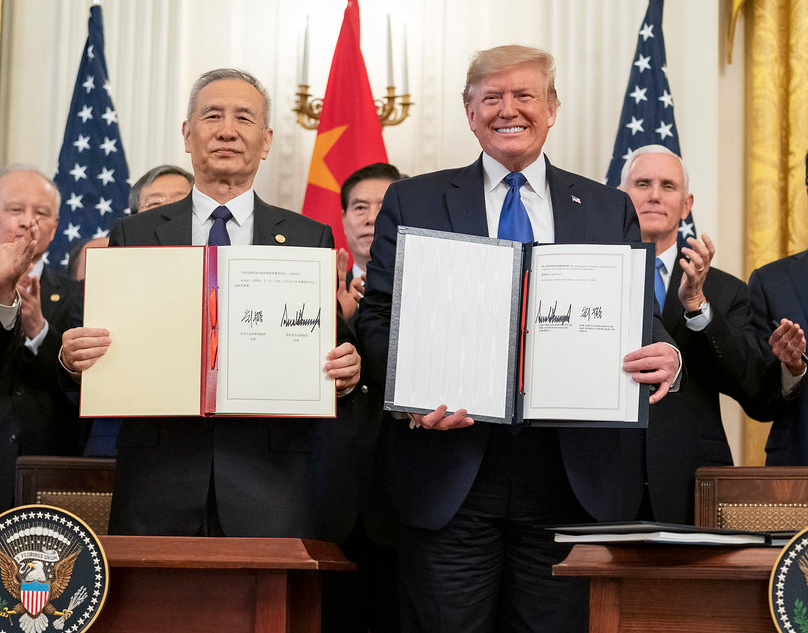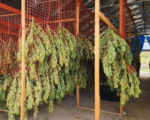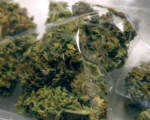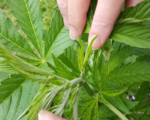President Donald Trump just signed a bill that ends the longest U.S. government shutdown ever, but it comes with a shocking twist: a nationwide ban on most intoxicating hemp products. This move, tucked into the funding package, could wipe out a booming industry overnight. What does this mean for businesses and consumers? Dive in to find out the full impact.
The government shutdown lasted a grueling 43 days, the longest in U.S. history, leaving federal workers without pay and services stalled. On November 12, 2025, Trump put pen to paper on a continuing resolution that funds the government through January 30, 2026. This bill not only reopens agencies but packs in full-year funding for agriculture, military, and veterans affairs.
The real bombshell hides in the agricultural section. It redefines hemp to ban most consumable products with THC, effective November 13, 2026. Products like delta-8 THC drinks and edibles, widely sold in stores, will become illegal if they contain synthetic cannabinoids or exceed 0.3% total THC.
Lawmakers passed this in a tight House vote of 222-209, mostly along party lines. Only two Republicans, Thomas Massie from Kentucky and Greg Steube from Florida, voted no. Massie slammed the hemp ban, saying it would crush farmers in his state.
This isn’t just paperwork. The hemp industry, legalized in 2018, has grown into a $28 billion powerhouse, supporting nearly 300,000 jobs nationwide, according to recent industry reports from groups like the U.S. Hemp Roundtable.
Why the Hemp Ban Sparked Outrage
Hemp products exploded in popularity after the 2018 Farm Bill allowed them with low THC levels. But critics argue loopholes let intoxicating items slip through, like delta-8 and HHC, which mimic marijuana’s high without strict rules.
The new law clamps down hard. It outlaws:
- Cannabinoids made outside the plant, such as delta-8 THC.
- Those not naturally from hemp, like HHC.
- Anything over 0.3% total THC, including THCA, or with similar effects.
This gives businesses a one-year grace period to adapt, but many say it’s not enough. In states like Texas and North Carolina, where hemp thrives without heavy regs, the ban could shutter shops and cost billions.
Take Wisconsin, for example. Local breweries and stores selling THC seltzers warn of devastation. A lobbyist there called it “decimation” for Minnesota’s hemp scene too, per recent statements from industry reps.
Opposition bubbled up fast. Kentucky Republicans, including Massie, fought the provision, highlighting hemp’s role in their economy. Even Rand Paul pushed to raise THC limits earlier this year, but that effort fizzled.

Impact on Businesses and Everyday People
For small business owners, this feels like a gut punch. Imagine investing millions in a legal product line, only to see it outlawed. In North Carolina, one of the most lenient states, hemp-derived edibles and drinks make up a huge market chunk.
Jobs are on the line. Estimates from the Hemp Industries Association, based on 2024 data, show over 55,000 jobs in Texas alone could vanish if similar state bans had passed earlier this year. Nationally, the fallout might hit 300,000 workers, from farmers to retailers.
Consumers lose out too. Many turn to these products for pain relief or relaxation, especially where marijuana remains illegal. Prices could spike, or options disappear, pushing people toward black markets.
Here’s a quick look at affected products:
| Product Type | Key Issue | Example Brands Impacted |
|---|---|---|
| THC Drinks | Synthetic THC | Popular seltzers like those from major retailers |
| Edibles | Over 0.3% THC | Gummies and snacks sold nationwide |
| Vapes | Non-natural cannabinoids | Delta-8 cartridges |
This table shows just a slice of what’s at risk, based on industry analyses from outlets like Marijuana Moment.
Some see hope in legal fights or state pushback, but the federal ban overrides local laws.
Political Ripples and Future Fights
Trump’s signature flips his earlier stance. Back in 2018, he signed the Farm Bill that kickstarted hemp’s boom. Now, this move aligns with calls to close “loopholes” from figures like Texas Lt. Gov. Dan Patrick, who vetoed a state ban but faced industry backlash.
Democrats mostly opposed the bill, citing broader funding issues, while some Republicans grumbled over the hemp clause. The Senate passed it 76-26 on November 10, showing bipartisan cracks.
Looking ahead, advocates plan lawsuits. The one-year delay might spark lobbying for changes in the next Farm Bill. But with Congress divided, relief seems slim.
This ties into bigger debates on cannabis reform. Trump mentioned rescheduling marijuana during his campaign, but actions like this raise doubts.
The hemp ban shocks an industry built on promises of growth, threatening livelihoods and choices for millions. As the dust settles, it leaves us wondering if this is progress or a step back.
Maria Garcia is an award-winning author who excels in creating engaging cannabis-centric articles that captivate audiences. Her versatile writing style allows her to cover a wide range of topics within the cannabis space, from advocacy and social justice to product reviews and lifestyle features. Maria’s dedication to promoting education and awareness about cannabis shines through in her thoughtfully curated content that resonates with both seasoned enthusiasts and newcomers alike.








